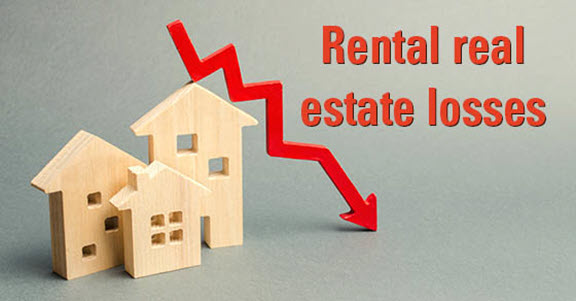Unlocking Tax Benefits: Are You a Qualified Real Estate Professional Under IRS Rules?
When it comes to rental property losses, most taxpayers hit a wall: the IRS classifies these as passive activity losses (PALs), which can typically only be deducted against passive income. So, unless you have other passive gains—like from additional rental properties—your losses may be stuck in limbo, carried forward to future years.
But here’s the good news: there’s a valuable tax exception for those who meet the IRS criteria as real estate professionals. Let’s explore what it means to qualify and how this designation could help you deduct rental losses now instead of later.
Understanding Passive Activity Losses (PALs)
Under standard federal tax rules, rental real estate losses are considered passive. If your other income (like from a W-2 job or business profits) isn’t passive, you can’t use these rental losses to reduce your tax liability. Instead, they’re carried forward into future years until you either:
-
Generate enough passive income, or
-
Sell the property that caused the loss.
The Real Estate Professional Exception
The IRS makes an exception for taxpayers who are materially involved in real estate activities. If you qualify as a real estate professional, your rental losses may be reclassified as non-passive, meaning you can deduct them against your regular income.
To qualify, you must:
-
Spend more than 750 hours per year in real estate activities in which you materially participate, and
-
Work more hours in real estate than in all your other trades or businesses combined.
Once you meet this threshold, you must also prove material participation in each rental activity to make those losses non-passive. The three easiest ways to do this include:
-
Spending over 500 hours annually on the activity,
-
Spending over 100 hours, and more time than any other individual, or
-
Performing substantially all the work related to the property.
What If You Don’t Qualify as a Real Estate Pro?
Not everyone can meet the 750-hour requirement, especially if you have a full-time job elsewhere. But there are still some alternative exceptions that could let you deduct rental losses now:
1. The $25,000 Small Landlord Exception
If you:
-
Own at least 10% of the rental property, and
-
Actively participate in its management (approving tenants, leases, or repairs),
You may be able to deduct up to $25,000 in rental losses annually. This deduction begins to phase out when your adjusted gross income (AGI) exceeds $100,000 and disappears entirely at $150,000.
Note: Properties owned through limited partnerships don’t qualify.
2. 7-Day Average Rental Rule
If your rental property’s average lease duration is seven days or less, it’s treated as a business rather than a passive activity. If you meet one of the material participation tests, losses from this property are non-passive and deductible.
3. 30-Day Rule with Services Provided
When your property is rented out for an average of 30 days or less and you provide substantial personal services (like cleaning, concierge, or meal service), the IRS may also treat it as a business activity. Again, if you materially participate, you can deduct those losses immediately.
Maximize Every Available Tax Break
Navigating the world of rental property tax rules can be complicated—but it’s also filled with opportunity. Whether you qualify as a real estate professional or fall under one of the exceptions, it’s worth evaluating your eligibility every year.
Our team can guide you through the requirements and help you maximize every available deduction. Don’t let your rental losses go to waste—let us help you make the most of your investments at tax time. Contact us today for a personalized consultation and let our experts help you make the most of your rental property deductions.






